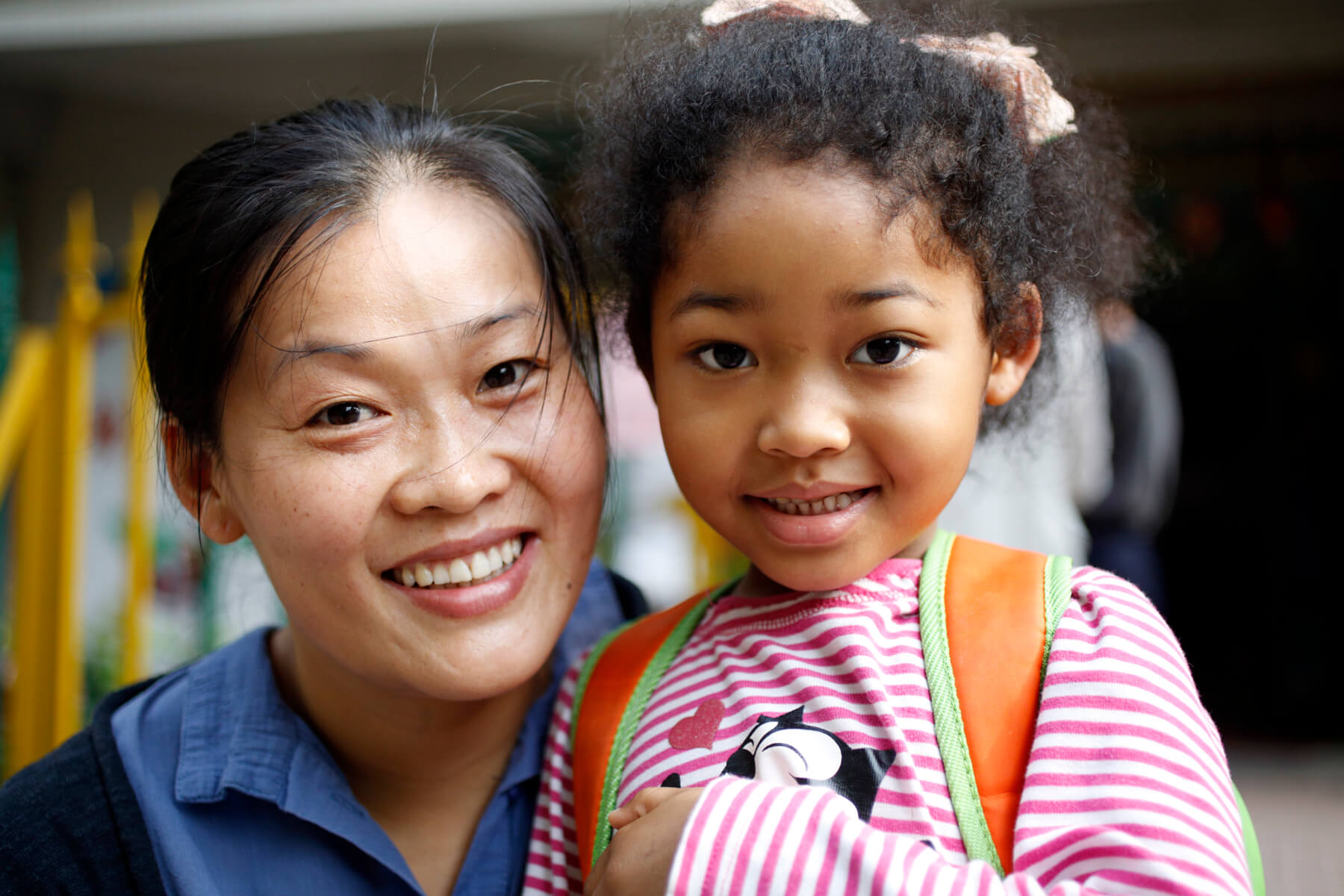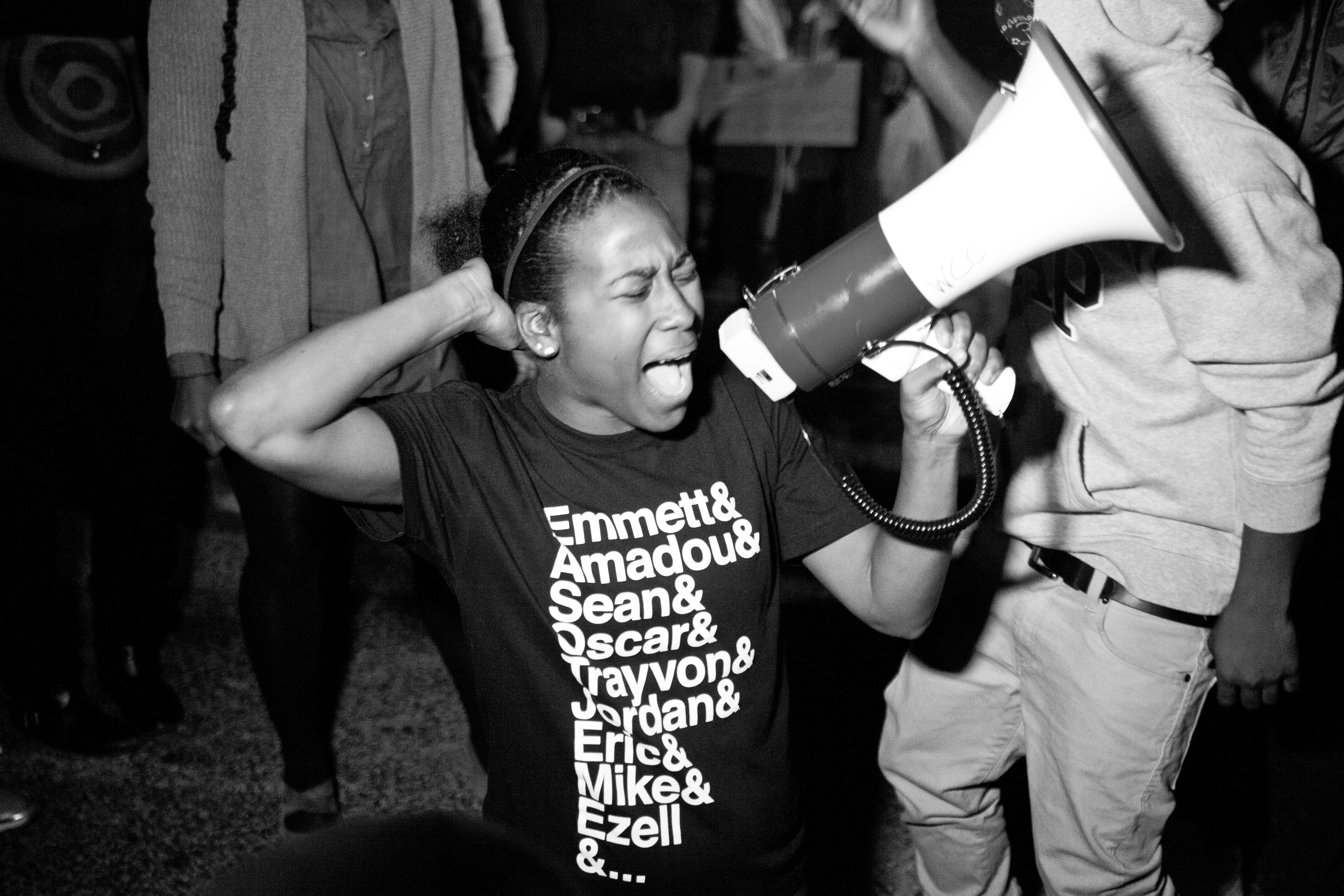Chicken & Egg Pictures announces grantees for inaugural Accelerator Lab
Chicken & Egg Pictures announced today the selected participants of the inaugural Accelerator Lab. The Accelerator Lab brings together 10 non-fiction projects helmed by first and second-time women filmmakers as part of a brand new program with the goal of providing the necessary tools and environment for talented filmmakers to tell their stories. The Accelerator Lab is focused on identifying a diverse group of first and second-time women non-fiction filmmakers and supporting their continued success through various means and initiatives.
These include providing financial assistance by way of grants, as well as creative guidance and support through mentorship workshops, industry connections, and peer support. Participants will receive a two-part grant for the production of their film, which they will develop over the course of the 12-18 month program.
“These filmmakers and projects represent a microcosm of the over 200 filmmakers whom Chicken & Egg Pictures has supported over the last ten years. Our goal is to nurture their talent by providing them with a yearlong creative lab program, a grant of up to $35,000, and a community of women filmmakers who can support and learn from one another,” said Jenni Wolfson, Executive Director of Chicken & Egg Pictures. “We selected these women filmmakers because we believe not only that they are going to make artful and compelling films, but because we believe that these stories must be told and will contribute to changing how we see and respond to the world around us.”
2015 ACCELERATOR LAB PARTICIPANTS:
A GUANGZHOU LOVE STORY
Director: Kathy Huang
In China, an unprecedented surge in African migration has led to a rise in marriages between Chinese women and African men. A Guangzhou Love Story captures the love, heartache, and real life challenges of Afro-Chinese couples attempting to forge a meaningful future together in the face of racism and xenophobia.

BY A THREAD
Director: Rina Castelnuovo & Tamir Elterman
By A Thread tells the story of Muhammad (Muhi), a Palestinian child from Gaza and the son of a Hamas activist wanted by Israel. As a newborn, Muhi is transferred to Israel for treatment of a life-threatening condition. Months turn into years and Muhi, now six, has lived his whole life in the Israeli hospital, confined for security reasons to its premises with his grandfather. The film explores Muhi’s contradictory world in which he is treated, raised, and saved by his people’s enemy, while his parents remain in Gaza.
By A Thread is an inside look at the Israeli-Palestinian conflict’s inescapable presence in everyday life and how it shapes those like Muhi who are unwillingly drawn into it.
CUENCA
Director: Isabel Alcántara
After a spate of mysterious illnesses and deaths, a community in Mexico discovers its water is radioactive. What unfolds is a story of resilience, conviction and the lies we tell ourselves about our dwindling resources.

FLY AWAY
Director: LC Cohen
Fly Away is a film about memory, identity, and growing up told through the eyes of seven siblings and their mother. Five of the children are on the autistic spectrum and as they move through adolescence, an event of the past keeps drawing them back. Combining observational footage with a rich archive of home movies and songs, the film is both a detective story and coming-of-age tale, exploring universal themes of memory, family, and love.
LAWYERS
Director: Hikaru Toda
A story of love, family, and rights, Lawyers is a snapshot of Japan in transition. Fumi and Kazu are life partners, both professionally and privately: they run the first and only law firm in Japan run by an openly gay couple. From activists to artists to vulnerable young people, we see a cross section of Japanese society pass through Kazu and Fumi’s office – their clients and their cases reveal Japan’s changing social landscape and the diversity too often overlooked in its homogenous society. Lawyers also follows Kazu and Fumi’s quest to raise a family. Faced with a legal system that doesn’t allow adoption by same sex couples and having seen firsthand the realities of institutionalized youths, they have begun the process of registering as foster parents.
ROLL RED ROLL
Director: Nancy Schwartzman
The story of a football town divided, Roll Red Roll is a true crime thriller examining sexual assault in small town America.
RULES TO LIVE BY
Director: Hope Litoff
A reflection on the life and suicide of Ruth Litoff, a successful artist, a pathological liar, and the filmmaker’s sister. By looking back on Ruth’s incredible highs and lows, bursts of creative genius, depression, secrets, and lies, a vivid portrait will emerge of the brilliant woman the filmmaker is not sure she ever really knew. This is her attempt to understand what happened.
SONS AND DAUGHTERS OF THE INCARCERATED
Director: Denali Tiller
Growing up is full of challenges, but for Tre, Maison, and Giana those challenges reach beyond friends, school, and middle school crushes. Sons and Daughters of the Incarcerated tells the story of three children whose fathers are in prison, and a formerly incarcerated mother who is now working to stop the cycle. How do the stigmas of incarceration shape their identities as they struggle to find their places in their communities and the world? What will it take to break the cycle of violence, crime, and imprisonment that pulls so hard on these kids’ lives and millions more like them?
THE FEELING OF BEING WATCHED
Director: Assia Boundaoui & Alex Bushe
The Feeling of Being Watched is the first documentary film to tell the story of the War on Terror from the perspective inside an Arab-American neighborhood. Since the early 90’s, people in Bridgeview, IL have stayed quiet about their deep suspicions of living under government surveillance, and no one has ever dug into why the surveillance may have begun. Until now. This film brings to light an under-represented human story and follows the filmmakers as they investigate what really happened, and may still be happening, in Bridgeview.
WHOSE STREETS?
Director: Sabaah Jordan & Damon Davis
A first-hand look at how the murder of one teenage boy became the last straw for a community under siege. Whose Streets? is a story of love, loss, conflict, and ambition; the journey of everyday people turned freedom fighters, whose lives intertwined with a burgeoning national movement for black liberation. This is a film for all of America – it provides insight into the unseen reality of racism, the role of media in conflict, state-sanctioned violence, and militarized policing – but at its core it is Ferguson’s story, it is our cry of “enough is enough.”

Program Manager Iyabo Boyd shares some last-minute tips for our 2015 Accelerator Lab Open Call
The deadline for the 2015 Accelerator Lab Open Call is fast approaching. Applications are due this Wednesday, June 10, 2015, by 5:00 PM EDT.
If you’re only just getting started on your application, don’t worry – we’ve compiled the below tips to help you get up to speed fast:
Overview: For those of you that want a full breakdown of this whole process, please review our Grants page and Frequently Asked Questions, both of which provide very helpful and thorough information. If you still have questions, please email info@chickeneggpics.org with your project title in the subject line.
Funding and mentorship: This Open Call for funding is the process that determines which films will be selected for our 2015 Accelerator Lab. If you are selected to receive a grant, you will also participate in the lab, which is a year long intensive mentorship program (with possibility for extension). It is not a goal of the lab for the films to be completed in that year; that is the length of time you’ll spend with us receiving mentorship. The lab will be structured around 3 to 4 retreats that the granted directors are required to attend, with travel support from us. The lab will be more intensive and tailored than our past mentorship programs, but if you want some insight on our mentorship style in general, take a look at our mentorship page or our blog.
First- or second- time filmmakers: When we say first- or second- time filmmaker, we’re talking specifically about your experience as a director or co-director of feature-length documentaries. You are still eligible if you’ve already made a few shorts, or done fiction work, we’re looking for directors who are making their first or second feature-length documentary. By feature length, we mean 40 minutes or more. Read more about this in our Frequently Asked Questions.
Early production: For this round, we’re only accepting projects between development and early-production (with no more than 40% of the footage shot) because we want to ensure that we have the greatest opportunity possible to make an impact on the film and on your development as the director. If you’re having trouble figuring out what percentage you’ve shot, think about the big picture of your finished film, where you are now, and what you need to do to get to that finished project. What do you have in the can, and how much more shooting do you think you have left to do? That’s how you’ll assess if you’ve reached the 40%. We’re not keeping count, but we hope you’ll respect the guidelines and be honest with yourself when considering applying.
Work samples: In a nutshell, the short work sample should grab our attention and show the project’s potential; the long work sample should give us a deeper sense of your directorial style, characters, and pacing of the film; and the prior work sample should tell us about your experience and your ability to follow through. The short and long samples should consist of pieces of the project with which you’re currently applying, whereas the prior work sample is from a different film you’ve worked on in the past.
No footage shot yet: We have a strict requirement of at least 7 minutes of footage for applicants. If you can, shoot something quickly before the deadline or maybe ask your subjects to shoot some verite or interview of themselves for you, but only if you think it will be good enough to represent your project in our review process. We do not accept unsolicited updates, so the application is the only opportunity for you to show us what you have. If it doesn’t seem you can get it all together before the deadline, it might not be the right time for you to apply for this round.
Parting shots: Here are a few last items to keep in mind:
-
- For this round we are not accepting interactive projects or series. Stay tuned for announcements on an upcoming program geared toward these formats in 2016. Join our mailing list, and follow us on Facebook and Twitter.
- If you’re unsure what makes a documentary a hybrid, check out this great article from the POV blog. Please also note that just because your film is based on a true story, that doesn’t mean it’s automatically a hybrid.
- For guidance on the written application, be sure to look at the help text on the right side of each question. Please also note that the word count for many of the essay based questions is 2300 characters, including spaces. Trust us, brief is better.
If you have any additional questions or concerns, send an email to info@chickeneggpics.org. Be sure to include the name of your project in the subject line.
